Art World
See the Biggest, Weirdest, Most Radical Art From Burning Man 2018
The theme of this year’s event, “I, Robot,” asked artists to look at how the “many forms of artificial intelligence that permeate our lives."
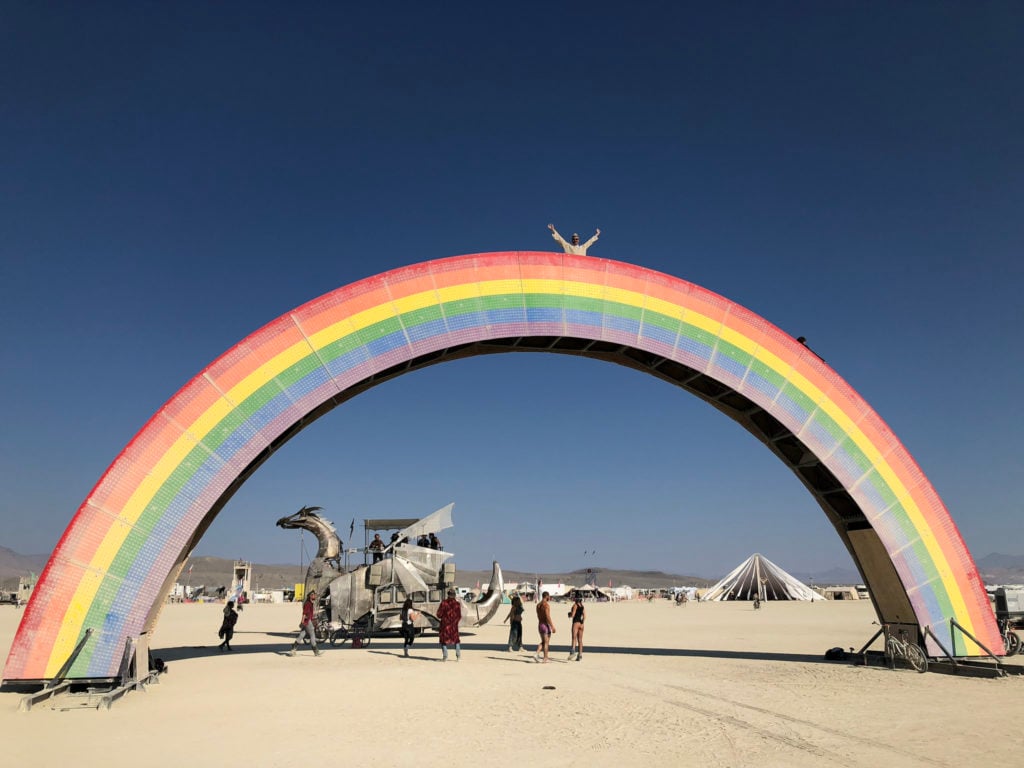
The theme of this year’s event, “I, Robot,” asked artists to look at how the “many forms of artificial intelligence that permeate our lives."

Tanner West

Another year, another Burning Man. The 2018 iteration of the annual gathering in Black Rock Desert, Nevada, attracted some 70,000 radical self-expressers and with them, a horde of state-altering drugs, wacky costumes, and decked-out vehicles. They also came with several hundred artworks, the size, ambition, and strangeness of which would make the titular wooden man proud.
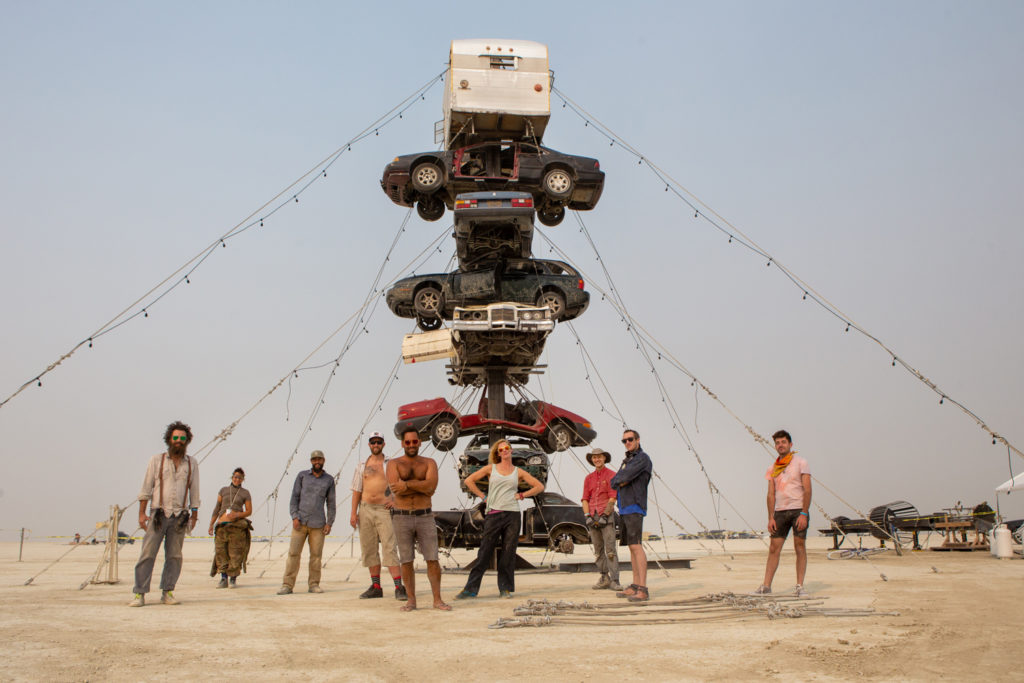
Dustin Weatherford, Night at the Climb In. Photo: John Curley.
Last week, artnet News critic Ben Davis reviewed “No Spectators: The Art of Burning Man,” on view now at the Smithsonian’s Renwick Gallery in Washington, DC. Now, with the week behind us and the desert city left with little evidence of the ad-hoc community that called it home over the previous nine days, we turn our attention to the art of this year’s event.
The theme of this year’s fest was “I, Robot.” Loosely inspired by Isaac Asimov’s 1950 collection of short stories published under same name, it asked participants to look at the “many forms of artificial intelligence that permeate our lives; from the humble algorithm and its subroutines that sift us, sort us and surveil us, to automated forms of labor that supplant us,” according to the event’s website.
Indeed, techno-futurism is a theme that’s marked Burning Man since the event’s earliest years—perhaps because of its proximity to Silicon Valley—but this year, it was turned up a notch, featuring robots supplanted in the sand, more than a couple of mechanical animal statues, and several veiled critiques of tech culture.
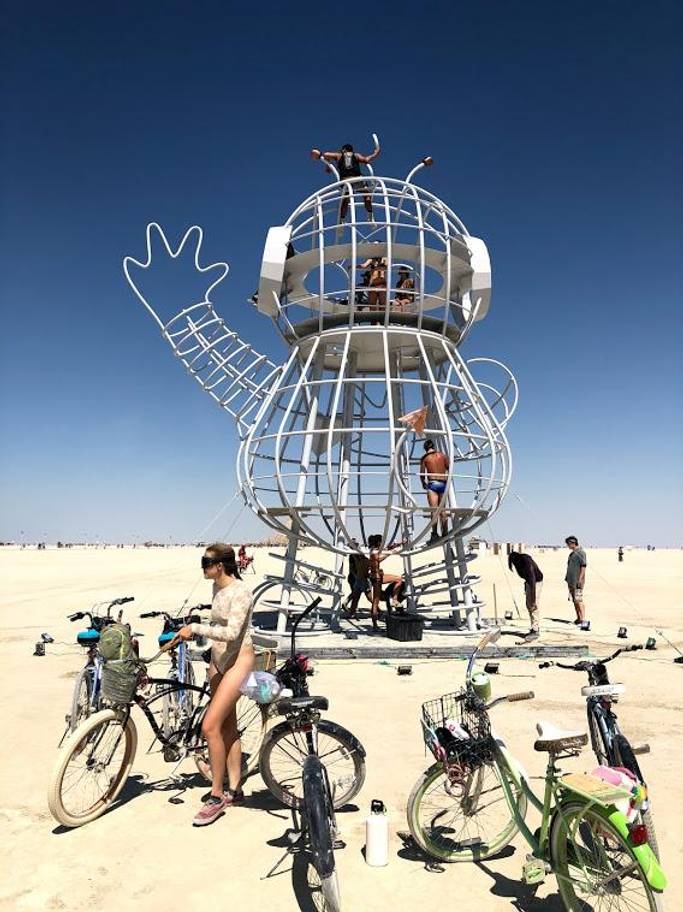
BEBOT, for instance, a 35-foot-tall waving robot made from a climbable wireframe, looked like a cute mascot for a startup—not dissimilar to the Reddit logo. However, the work also invited speculation that it was a symbol for the hollowness of tech culture and a harbinger of the potential evils that come with artificial intelligence.
Burners are known for adhering to a variety of principles, but moderation is not one of them. Consequently, much of the art made for the event tends to be big and bold.
See, for example, The ORB—a giant, steel ball hovering above the Playa. Created by Copenhagen-based designers Bjarke Ingels and Jakob Lange, the object is scaled to 1/500,000 of the earth’s surface and has a diameter of nearly 100 feet. It was one of the most popular attractions this year—not surprising given its shininess and sheer size. The Danish duo raised over $34,000 on Indiegogo to transport the thing to Black Rock.
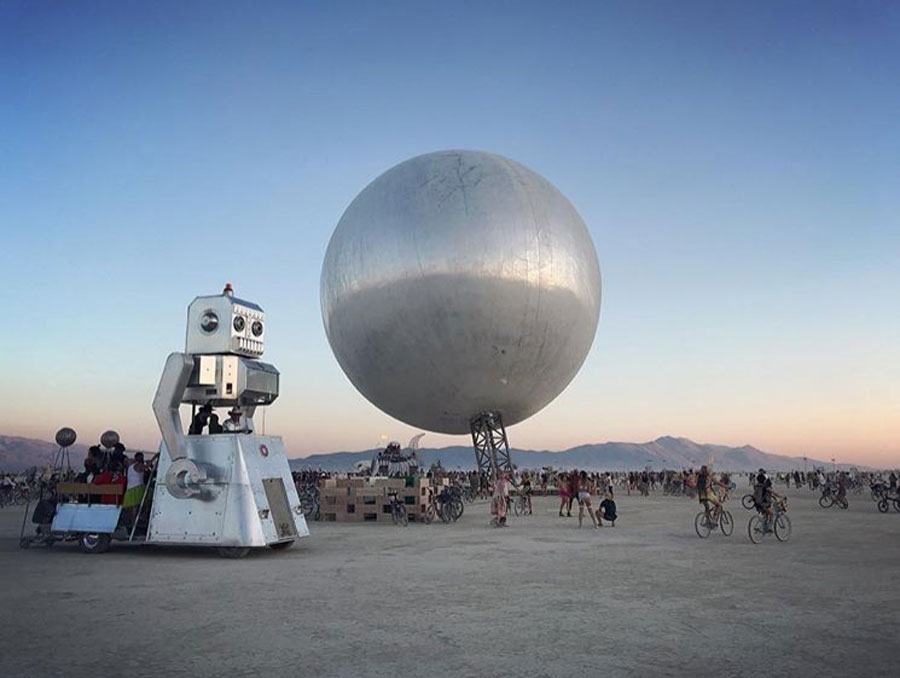
Bjarke Ingels and Jakob Lange, The ORB. Courtesy of @missjessrose, via Instagram.
Playing to Burning Man’s Mad Max aesthetic, another popular artwork was Night at the Climb In, a sculpture featuring seven junk cars and an old RV stacked shish kebab-style on a 50-foot-tall metal skewer. Oh, and on the top, flamethrowers. However, the work was closed by police mid-way through the week after a man attempted to climb it and fell off.
Located near the center of the playa was Rainbow Bridge, a 75-foot-long, 30-foot-high arched sculpture with ROYGBIV LEDs. Burners were encouraged to walk up either side of the bridge, and at the top, they were treated to some of the best views of the camp available.
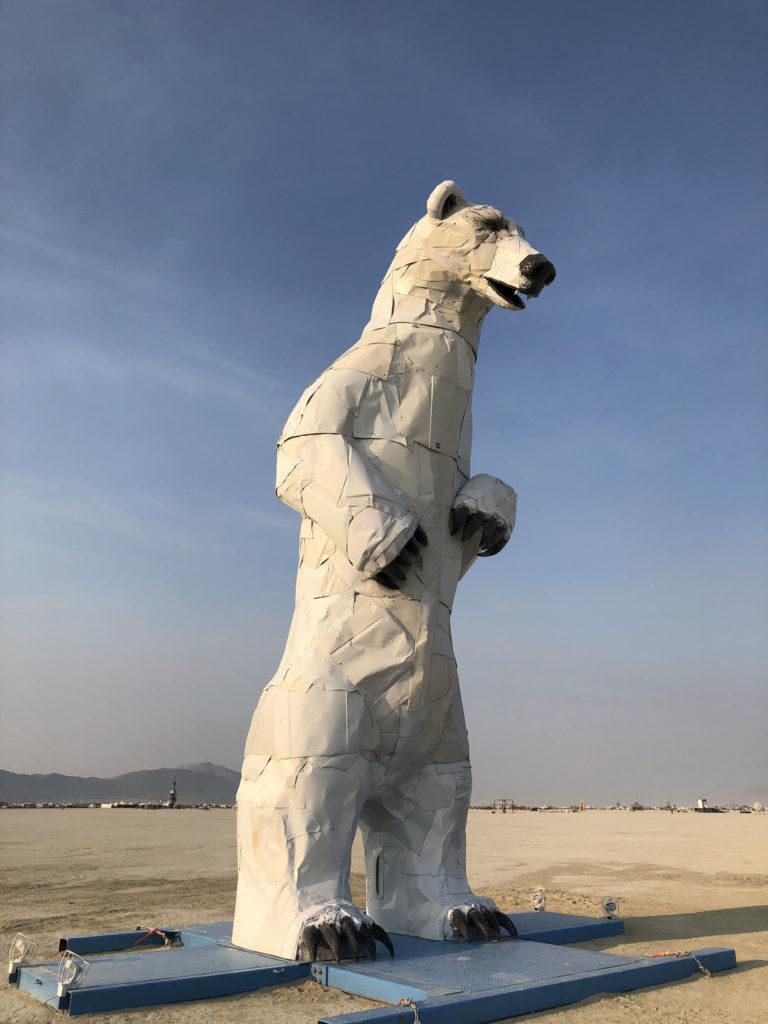
Don Kennell and Arctic Burn 505, Long View: A Polar Bear Stands in the Desert. Courtesy of @ripesincebirth, via Flickr.
But not all was so happy-go-lucky. Nearby was a 36-foot-tall polar bear made from car hoods, a symbol for global warming. According to the project’s own Indiegogo page, it was made to “show the connection between carbon footprint and habitat loss.”
And all that is just but a fraction of the Burning Man’s art offerings. See more photos from the festival below.
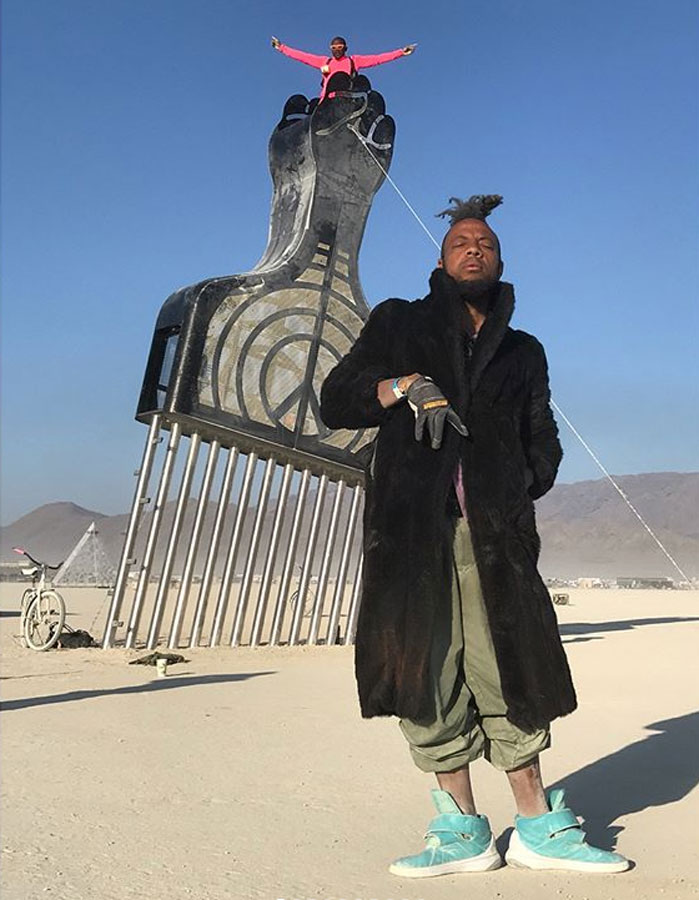
Artist Colby Kennedy in front of Hank Willis Thomas’s All Power to All People. Courtesy of Kennedy’s Instagram.

Jessi Sprocket Janusee and Baba Yaga’s Book Club, Baba Yaga’s House.Courtesy of @jtportland, via Instagram.
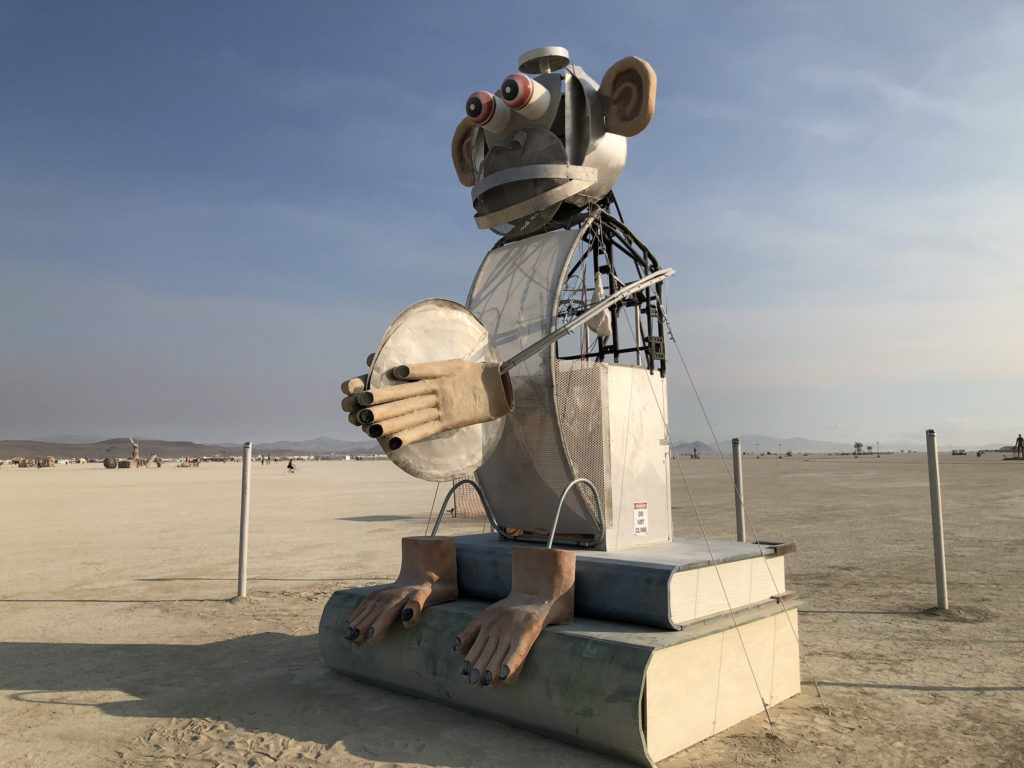
Amy Munson, Pan Genius. Courtesy of Courtesy of @ripesincebirth, via flickr.

Courtesy of @burning_hats, via Instagram.

Courtesy of @burning_hats, via Instagram.

Clayton Blake, Perpetual Consumption. Courtesy of the artist’s Instagram.